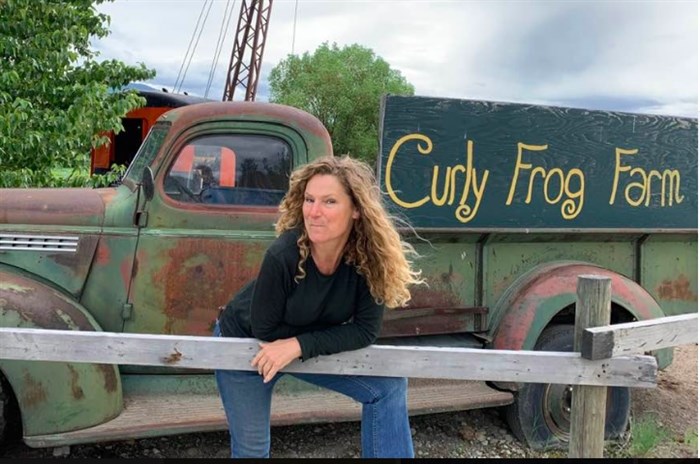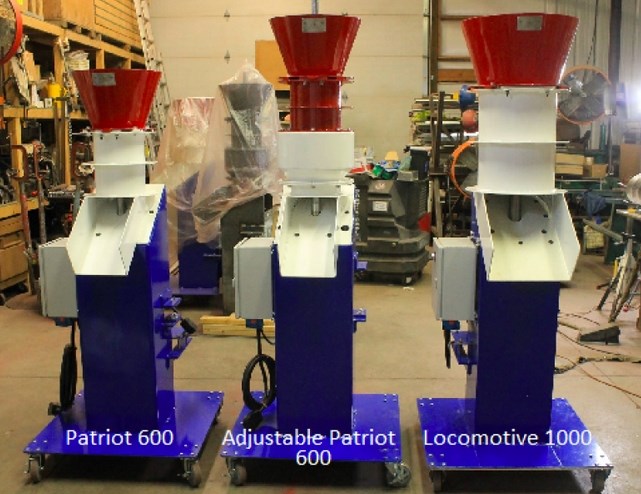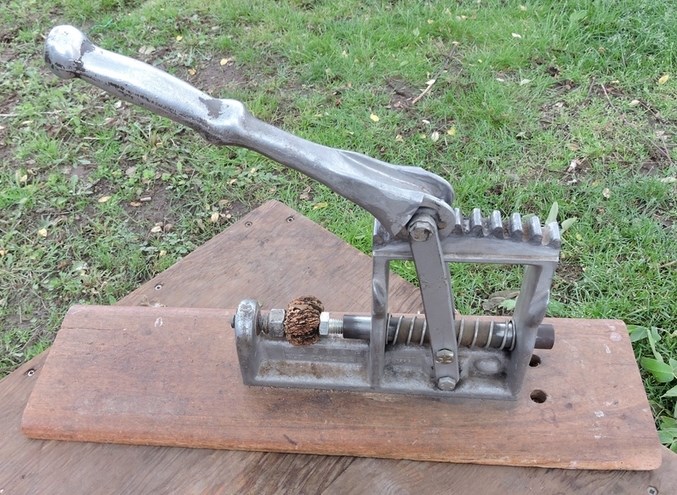
Curly Frog Farm owner Brenda Dureault
Image Credit: FACEBOOK/Curly Frog Farm
June 27, 2020 - 6:00 PM
It’s been more than 100 years since the Gellatly family proved that nut trees can be successfully grown in the Okanagan but ultimately failed to prove it can be a commercial success.
The Gellatly nut farm in West Kelowna has several varieties of hardy nuts but they never took off as a commercial crop like cherries, peaches and apples did.
There appears to be only one farm in the Okanagan that still holds those aspirations but Brenda Dureault’s Curly Frog Farm. She says that lack of growth as an industry means there's no infrastructure to support it.
“I think it’s a lack of small scale nut processing equipment” that's holding things up, Dureault told iNFOnews.ca “That’s the step where I’m at right now.”
She’s working with UBCO fourth year engineering students trying to come up with an economical machine to crack the extremely tough Black Walnuts she grows and that are in demand by high end restaurants.

These nut crackers, sold by Grimo Nut Nursery in Ontario, cost $7,300 USD plus shipping.
Image Credit: Submitted/Grimo Nut Nursery
But, it will take more than an affordable nut cracker to create an industry, says Linda Grimo of Grimo Nut Nursery in Niagara-on-the-Lake, Ontario, likely the only commercial walnut grower in the country.
“In Canada, we simply cannot compete with California,” she said. “They have a labour force that comes over the border and works for next to nothing.”
But it’s more than cheap labour.
California has a longer growing season and, historically, an ample water supply to draw on in the dry season.
They also don’t have the rains that hit the Okanagan and Niagara regions. The nuts can harbour a fungus that needs to be sprayed for every two weeks because it washes off.
But climate change may make nuts a more viable crop in the future.
“When the Colorado River dries up, Kelowna and Ontario are going to have ample opportunity to sell those English Walnuts,” Grimo said.
To put it simply, there are two main types of walnuts: English and Black.
English have lighter brown, softer shells that the UBCO students have developed a suitable cracker for, Dureault said. Those are what are in many Okanagan backyards and the older trees likely all came from the Gellatly farm.
But, the Black Walnut is a different beast to tackle.

This hand crusher is only $85 at Grimo Nut Nursery.
Image Credit: Submitted/Grimo Nut Nursery
“The Black Walnut is the hardest nut to crack but it’s also the nut with the most nutrients in it,” Dureault said. “It the healthiest for you with a more robust, earthy flavour.”
Big walnut producers in the U.S. have $100,000 machines to crack shells and separate the meat from the shells, Grimo said. That’s not affordable to small scale growers.
Grimo hires crews to pick up walnuts from residents who sell them to her for $2 a bag rather than send them to the dump.
She has $20,000 worth of equipment to crack and sort many varieties of nuts. But, when it comes to the hard shelled black walnuts, she has to rely on human sorting. She tried to work with Niagara University to develop a sorter but that didn’t work. Since the meat and shell weigh about the same, separating them mechanically by wind or sorting by colour doesn’t work.
Dureault is trying to get the UBCO students to create a sorting machine as well.
Even if all these obstacles are overcome, there is still the farming mindset to overcome.
When Jack Gellatly was growing walnuts in the early 1900s, his focus was on breeding nut trees. While he sold seedlings all over the world, he was not pushing commercial production, Grimo said.
READ MORE: West Kelowna's nutty roots are unique to the Okanagan, and due to the Gellatly family
Her father, Ernie, was similar to Gellatly, experimenting with tree varieties long before he established his farm in 1974. It wasn’t until Linda got involved with a business mindset that the commercial side came out.
“When dad started out, it was pretty much a hobby,” she said. “My dad didn’t put any effort into commercializing it. Now it’s a two-man show.”
It’s a big step from there to convincing farmers to take the leap of faith from fruit to nuts because they want to be sure they have a long term, secure market. That same challenge would have been there in Gellatly’s day as well, Grimo said.
“Even in those days, farmers in Kelowna were more likely to put in peaches and the tender fruit because they knew that ships were showing up at those docks and they could load them and sell their peaches,” she said. “They didn’t know how well they would do selling walnuts.”
The hard Black Walnuts, in particular, are a highly valued product, fetching $20 a pound.
For more on Curly Frog Farm, go here.
For more on Grimo Nut Nursery, go here.
For more on how to grow walnuts, go here.
To contact a reporter for this story, email Rob Munro or call 250-808-0143 or email the editor. You can also submit photos, videos or news tips to the newsroom and be entered to win a monthly prize draw.
We welcome your comments and opinions on our stories but play nice. We won't censor or delete comments unless they contain off-topic statements or links, unnecessary vulgarity, false facts, spam or obviously fake profiles. If you have any concerns about what you see in comments, email the editor in the link above.
News from © iNFOnews, 2020